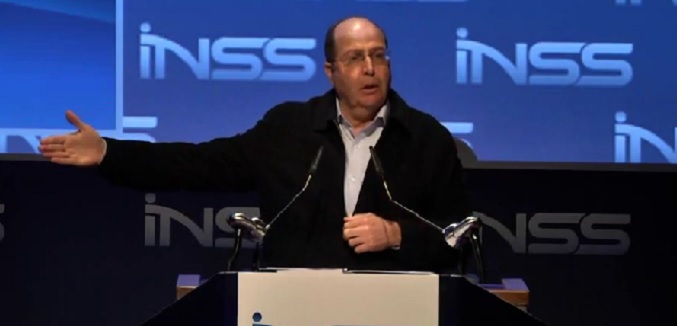Israeli Defense Minister Moshe Ya’alon on Thursday told a group of foreign military attaches that the Palestinian Authority (PA) would have to disarm Hamas to signal that it is genuinely pursuing a viable and united Palestinian state, the latest in what has become daily criticism from diplomats, analysts, and journalists blasting a recent Palestinian unity pact for embracing a “Hezbollah model” that left intact Hamas’s estimated 10,000 fighters and vast missile and rocket arsenal:
Defense Minister Moshe Ya’alon called on Palestinian Authority President Mahmoud Abbas Thursday to disarm Hamas and take control of the Gaza Strip after creating a unity government with Hamas approval.
If Abbas fails to do so, it will be clear that the reconciliation is a farce meant to fool the world, Ya’alon said at a meeting with foreign military attachés in Israel, according to Israel Radio.
On Wednesday the Wall Street Journal noted that leaving Hamas’s military force in place put the Palestinian Authority in violation of core peace process treaties going back to 1995. A day before, top Israeli military analyst Ehud Yaari linked Hamas’s insistence on the Hezbollah model to coordination meetings conducted between the group’s leaders and top officials from Iran and Hezbollah:
Amid these bleak circumstances, Hamas leaders held a number of meetings in recent weeks with Iranian officials in Tehran and Hezbollah leaders in Beirut. There, the group’s representatives were advised to adopt a more ambitious plan than merely defending Gaza, namely, by contesting Fatah in its own West Bank territory instead. Hezbollah’s modus operandi in Lebanon — which can be summed up as “add ballots to your bullets” — was pushed as a model to be emulated.
Hudson Institute Senior Fellow Lee Smith has assessed that the Hezbollah model would likely trigger a reevaluation of Washington’s stance toward the Palestinians.
Hamas has openly bragged that it is indeed following Hezbollah’s approach to seizing and maintaining power in Lebanon, a boast that got the attention of both U.S. analysts and the Arabic-language Al Arabiya [Arabic].
[Photo: TAUVOD / YouTube]




